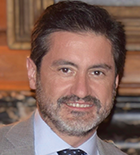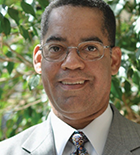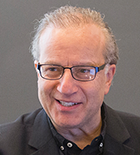Research
Our Community Research Priority Assessment Gets Underway

In 2020, we completed the first phase of our Community Research Priority Assessment. The goal of the assessment is to develop a top 10 list of research priorities that are driven by the needs of our community. This list will then guide HA’s future research endeavors. In phase one, we sent out a survey open to all of our community members including people with hydrocephalus, parents and caregivers, researchers, and medical professionals.
The response was overwhelming with over 1,000 people submitting over 4,800 research priorities. These priorities have now been categorized into over 150 research priority statements and will form the basis for a second survey that will go out to the community in the summer of 2021. Based on these results, the top 10 list will be finalized at a workshop toward the end of 2021.
Scientists Awarded HA Grants for Innovative Research
Every year, the Hydrocephalus Association awards grants to brilliant scientists to fund their high-impact research projects. The Innovator Award provides seed funding for bold and innovative work with the potential to transform hydrocephalus research. Our 2020 Innovator Award grantees are examining everything from why some people experience shunt blockages to new techniques to treat congenital hydrocephalus.

Carolyn Harris, PhD
Wayne State University
Preventing shunt occlusion | Dr. Harris is focused on understanding the differences in how immune cells in the brain react after a shunt is placed. This information will shed light on why some people are more likely to experience shunt blockages than others and direct new therapies to prevent shunt blockages. Supported by Team Hydro

Aditya Pandey, MD
University of Michigan
Preventing hydrocephalus after a stroke | Dr. Pandey aims to test if acetazolamide (Diamox), when put directly into the ventricles, can block the activity of a protein in the blood and prevent hydrocephalus after a stroke. Although acetazolamide has been tested before, this is the first time intraventricular administration will be attempted.

Jose Peiro, MD, PhD
University of Cincinnati
Treating congenital hydrocephalus prior to birth | Dr. Peiro is developing a technique to treat congenital hydrocephalus by performing an endoscopic third ventriculostomy (ETV) in utero. Early treatment may improve cognitive outcomes and negate the need of a shunt. Funded by the Rudi Schulte Research Institute (RSRI)

Stavros Taraviras, PhD
University of Patras
Turning scar tissue into functioning cells | Dr. Taraviras is working to reprogram scar tissue into functioning ependyma, the cells that line the ventricles. In many forms of hydrocephalus, ependyma are damaged and fall into the cerebrospinal fluid (CSF). Scar tissue replaces the ependyma. This treatment could reduce ventricle size and improve CSF movement, brain development, and brain health. Supported by Team Hydro
Amplifying Our Work
In 2020, four HA researchers received major follow on funding from the National Institutes of Health (NIH) for their HA-funded projects.
Joanne Conover, PhD (2017 HA Innovator Award) received a 5-year, Research Project (R01) grant worth $1,761,000 for her work on disease mechanisms in prenatal and pediatric acquired hydrocephalus.
Margaret Tish with mentor Joel Geerling, MD, PhD (2019 HA Innovator Award) received a 3-year Kirschstein-NRSA Individual Predoctoral Fellowship (F31) worth $98,000 for their work on urinary continence in normal pressure hydrocephalus.
Engin Deniz, MD (2019 HA Innovator Award) received a 2-year, Exploratory Developmental Research Award (R21) worth $433,000 for his work on tadpole model of hydrocephalus and ependymal ciliogenesis.
Brandon Miller, MD, PhD (2019 HA Innovator Award) received a 5-year, Mentored Clinical Scientist Research Career Development Award (K08) worth $927,000 for his work on reversing inflammatory macrophage activation as a treatment for neonatal intraventricular hemorrhage and hydrocephalus.
HA Hosts Inaugural Meeting of New Scientific Advisory Board
On Nov. 10, 2020 we brought together doctors and scientists for our first Scientific Advisory Board (SAB) meeting. The SAB will help shape HA’s research agenda, providing scientific leadership and guidance, in the years to come. Members include:

Guy Fish, MD (Chair)
HA Board Member, former CEO, Cellanyx
Expertise in life sciences, and health care innovation development and commercialization

Richard Keep, PhD (Vice Chair)
University of Michigan
Expertise in blood-brain and blood-CSF barriers, hemorrhage, and inflammation

Issac (Zak) Kohane, MD, PhD
Harvard Medical School
Expertise in genomics, precision diagnoses, technology, and big data

Jill Morris, PhD
National Institutes of Health
Expertise in neurological disorders, glial biology, neural crest cells, and genetics

Mike Siegel, PhD
Pediatric Dermatology Research Alliance
Expertise in scientific programs, and bioengineering, living with hydrocephalus

Mark Wallace, PhD
Vanderbilt University
Expertise in sensory-motor integration, developmental conditions, and electrophysiology

